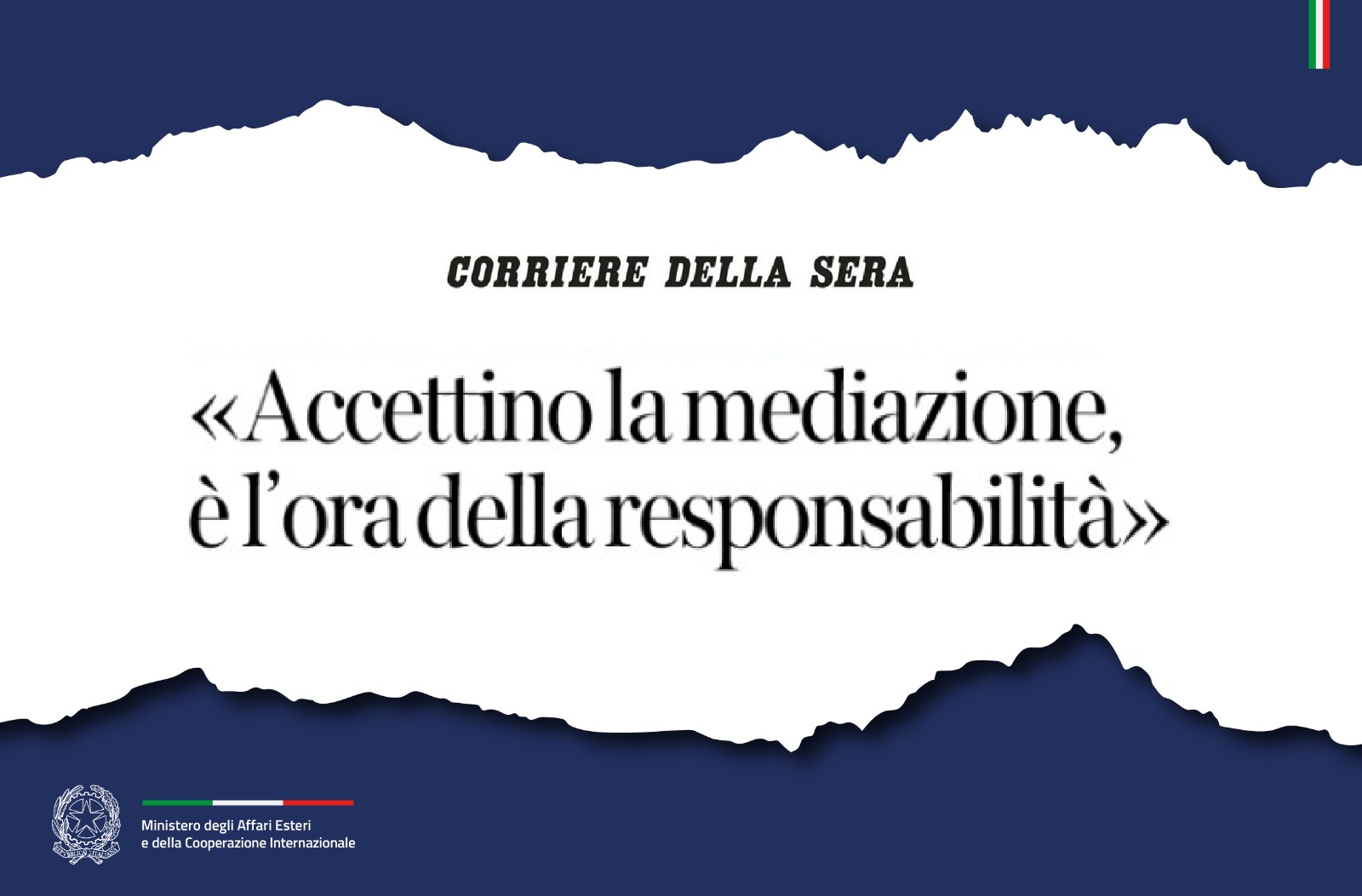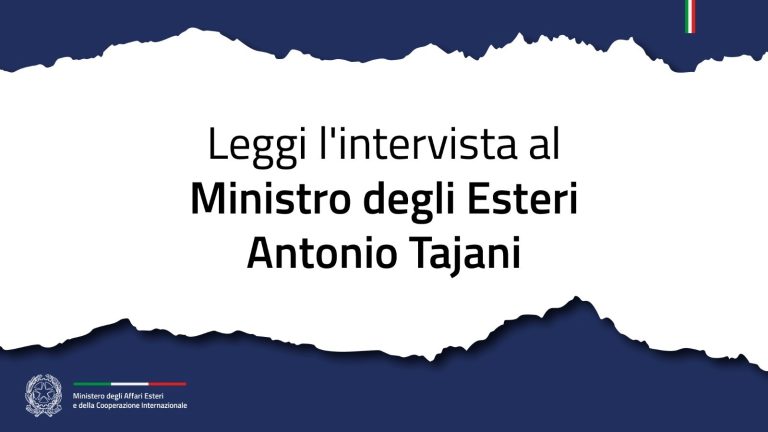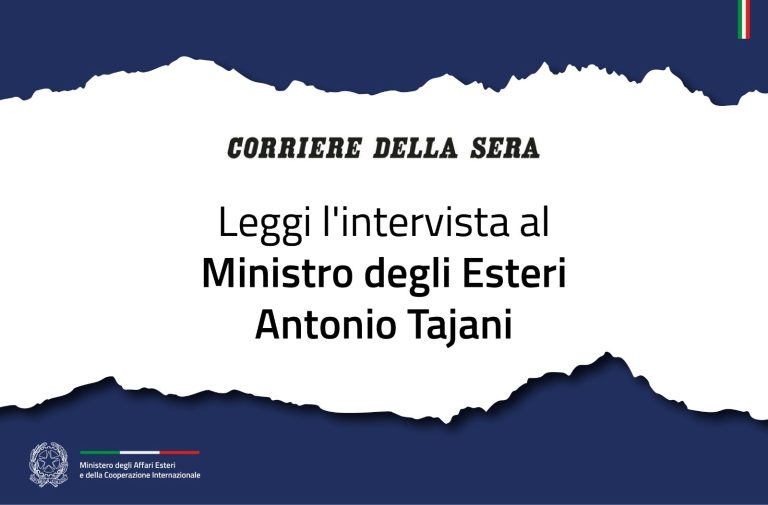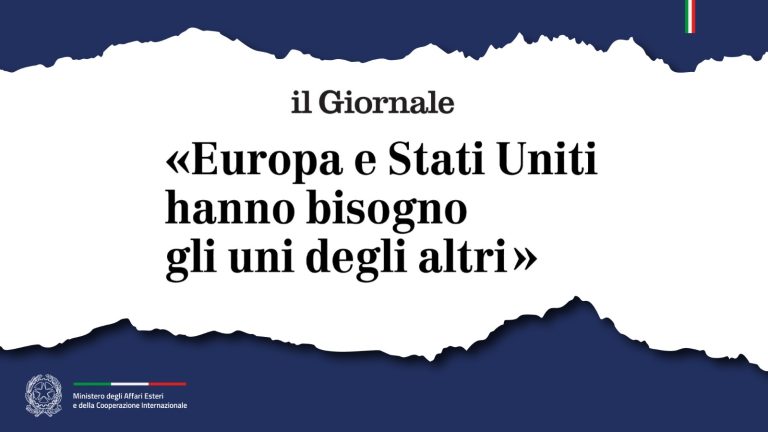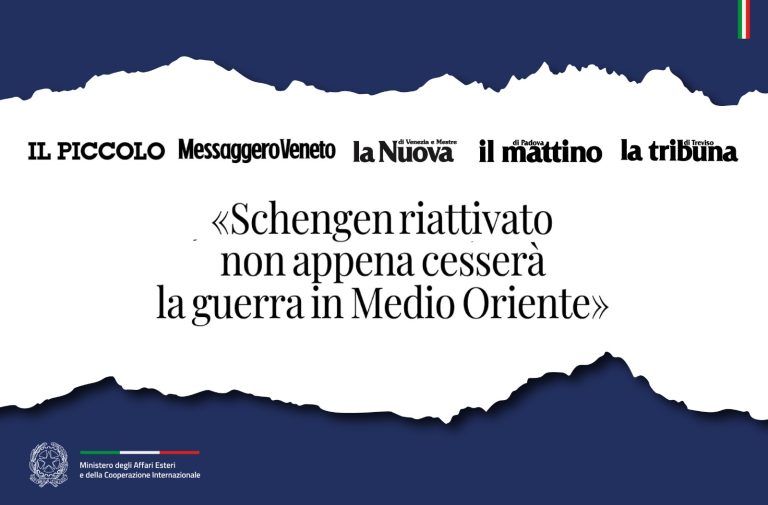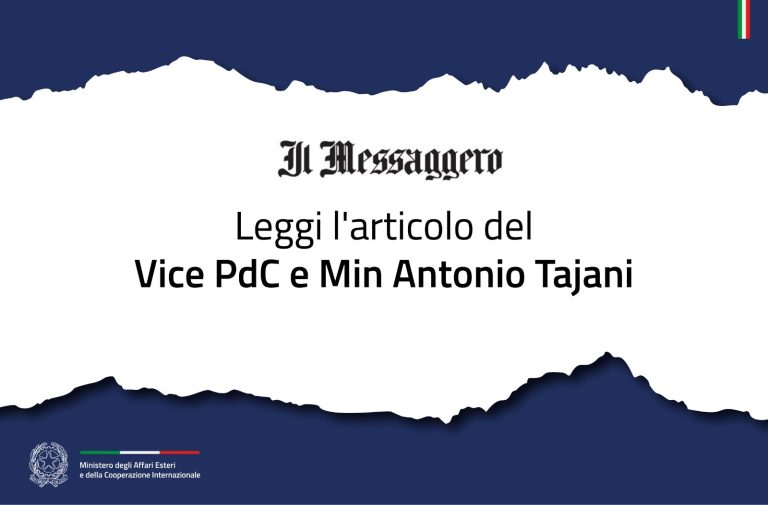The situation around the world is “incandescent”, on all fronts — Gaza and the war in Ukraine above all. For this reason too, Antonio Tajani, speaking from New York where he is attending the UN General Assembly, has issued a strong appeal for “responsibility” from everyone. “Regarding Gaza, the situation is far more dangerous than it may appear: forcing Israel’s naval blockade, entering Gaza’s waters, is entirely inadvisable. We must do everything possible to avoid putting the lives of the Flotilla’s activists at risk but, allow me to say, also those of our servicemen who are there to carry out a civil-protection mission, not to fight”.
Minister, there are different voices within the government: Crosetto speaks in calmer tones, the Prime Minister lashes out at the Flotilla mission, and you are working on a mediation. Are you united?
“Where do you see that difference? Of course we are working together, absolutely. We all want a de-escalation, and we are doing everything possible so that the humanitarian aid the Flotilla is carrying actually reaches its destination. That is how you help the civilian population, as Italy is doing — we are the leading European country for the reception of Palestinians. Forcing the naval blockade of a country at war is not how you help civilians”.
Has the mediation you worked on, with the Italian Bishops’ Conference and the Patriarchate of Jerusalem acting as intermediaries to deliver aid, failed?
“At the moment it has been rejected, but we hope they will reconsider and work will continue. We insist: if the objective is to provide aid to the people of Gaza, we can find ways to deliver assistance. It is the only viable solution to avoid very high risks”.
Are the Italians aboard the Flotilla responsive to your appeals?
“Many of them are more responsible and understand that the situation can degenerate. We have been in contact with them from day one; the Crisis Unit of the Ministry of Foreign Affairs is following the mission step by step, and our naval vessel is there not to engage in military action with anyone, but, if necessary, to provide assistance. Civilian aid, that is, not military. We are also ready to repatriate anyone who asks to return home. But I stress again: we cannot risk the lives of our servicemen, whatever one thinks about the mission — that is not negotiable”.
Other governments seem to be standing firm: have you had contacts?
“Yes, I have spoken with the Belgian Prime Minister, and with the French government: they asked us to ensure civil-protection measures for their citizens as well”.
Have you spoken with opposition leaders?
“I spoke with Elly Schlein, because this is an issue that concerns everyone. I see that the PD is also calling not to shut down mediation — that is what we are saying too. We are all worried, which is why we have said tones should be lowered. Political argument is one thing, verbal violence another. Until now they have used dangerous language; I hope things will change. Have you seen what they write about Prime Minister Meloni? I urge everyone to curb their language and above all to stop accusing the Italian government of being responsible for bloodshed”.
Do you believe the opposition and some of those promoting the Flotilla mission are instrumentalising the cause of Gaza to attack the government?
“Someone certainly is doing that, but I repeat: that is not how you help civilians in that ravaged land”.
Are you also concerned about public order and the safety of members of the government?
“As to public order, I do not so much ‘fear’ as observe: 60 police officers injured, damage, traffic blocked. It is not a ‘risk’ — it is beginning to happen. Very worrying. And for us too: if the protection level has been raised for certain ministers, myself included, there will be a reason. This is madness: a minister such as Bernini, who has done much to welcome Palestinian students to our universities, has been threatened. And every time I have been to Israel I have also been to Ramallah. Our position is absolutely balanced”.
But why do you not recognise, even as a symbolic gesture, the State of Palestine?
“We are ready to do so even tomorrow, but the conditions are clear: we would do it after Hamas has left Gaza and ceased to lead Palestinian politics. And we would do it after all the hostages have been freed. Doing it earlier would be a recognition of their power and would weaken the Palestinian Authority”.
Could that be used as a lever of pressure on Israel?
“France, United Kingdom and others have recognised Palestine: has that changed Israel’s attitude? I do not think so. We have said clearly that a slaughter is taking place, which we condemn, and that we condemn Israel’s policy in Gaza, but we also say that Hamas must be defeated, must release the hostages and must not use the civilian population as a shield, sending them to massacre. And then we must launch a new political and diplomatic cycle to achieve the two‑State objective”.
The Russia–Ukraine front is also tense. Putin’s provocations, drones, and incursions continue. What can be done?
“One thing is tests, provocations and shows of force — like the Taliban clashing swords against shields to intimidate their enemies. Another thing is real attacks or incursions… It is worrying that, as soon as Trump raised his voice, Russian planes appeared as far as Alaska… Putin seems unwilling to stop. We must keep our nerves”.
NATO chief Rutte does not rule out the use of force. Do you agree?
“I say we must work to avoid rash moves, distinguish provocations from attacks, and deliberate without losing our heads. We must have nerves of steel”.

